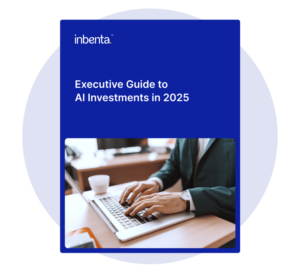Alphabet just made history. The technology giant surpassed a $4 trillion market capitalization for the first time, cementing its position as the world’s second-most valuable company. The surge follows a period of investor doubt, now erased by powerful AI momentum. A key driver is a landmark deal with Apple, which will use Google’s Gemini AI as the foundation for its next generation of Siri. This partnership gives Alphabet an unmatched distribution advantage. Beyond AI, Alphabet’s Wing drone delivery service announced a major expansion with Walmart, planning to scale operations to an additional 150 stores. The valuation reflects strong confidence in Alphabet’s ability to monetize new technologies.
Inbenta recognized in Gartner® Magic Quadrant™ for Conversational AI Platforms.
- Platform
- Solutions
 Inbenta’s Composite AI
Inbenta’s Composite AIInbenta’s AI, trained for over two decades on billions of interactions, enhances customer experience across industries.
- Use Cases
- industries
- Resources
- Articles
- AI This Week
- White Papers
- Newsroom
ArticlesAI This WeekAI This WeekAI This WeekAI This WeekWhite PapersWhite PapersWhite PapersWhite PapersNewsroom
- Company
- Partners
Unlock growth & innovation
CareersTransform the world with us
CompetitorsSee how we stack up






